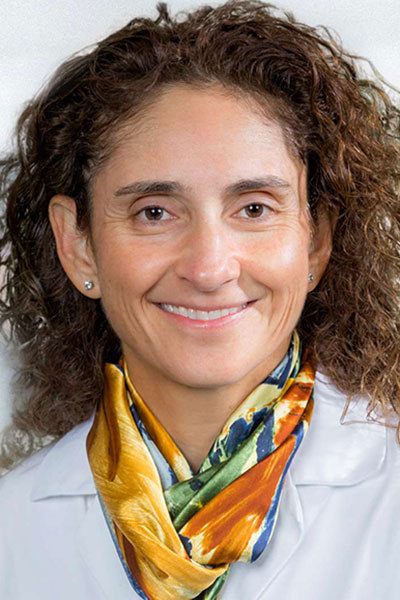
Surgical staging of breast cancers has long been used to guide adjuvant therapy. A growing body of evidence suggests that same paradigm can be helpful at the neoadjuvant stage.
“We are going to be looking at the latest evidence on understanding how responses to neoadjuvant therapy can help guide adjuvant therapy to improve benefits for our patients,” said Virginia Kaklamani, MD, DSc, Professor of Medicine, Ruth McLean Bowman Bowers Chair in Breast Cancer Research and Treatment, A.B. Alexander Distinguished Chair in Oncology, and Leader, Breast Oncology Program, at UT Health San Antonio MD Anderson Cancer Center. “It is time to look at how response to neoadjuvant therapy might be able to inform adjuvant therapy and whether tailoring adjuvant treatment based on neoadjuvant responses will improve patient outcomes.”
Dr. Kaklamani will moderate Predictive Value of Treatment Response and Residual Disease After Neoadjuvant Therapy on Tuesday, December 6, from 10:00 am – 12:00 pm CST in Stars at Night Ballroom 1 & 2. The session will explore the potential predictive value of neoadjuvant treatment response for patients with ER positive, HER2 positive, and triple negative breast cancer.
While endocrine therapy has long been the mainstay adjuvant treatment for ER positive breast cancer, a growing body of evidence supports the role of endocrine therapy in the neoadjuvant setting as well. Cynthia X. Ma, MD, PhD, Professor of Medical Oncology, Washington University School of Medicine in St. Louis, will discuss the latest findings on neoadjuvant therapy in ER positive breast cancer and ways responses to neoadjuvant therapy might help guide subsequent treatment.
Luca Gianni, MD, Co-founder and President of Fondazione Michelangelo ONLUS, Milan Italy, will discuss the current state of the evidence for neoadjuvant therapy in HER2 positive breast cancer and the potential predictive value of neoadjuvant treatment response.
“Practice is changing for HER2 positive and triple negative breast cancer, but we don’t really have all the data yet that we would like for ER positive disease,” Dr. Kaklamani noted. “It will be interesting to see how Dr. Ma is going to interpret the data and whether she will advocate for neoadjuvant therapy or whether she thinks adjuvant therapy should be the standard of care.”
The KATHERINE trial, featured at SABCS in 2018, helped underline the potential benefits of antibody-drug conjugate agents in triple negative breast cancer for patients who had residual disease after neoadjuvant chemotherapy plus HER2-targeted therapy. Peter Schmid, MD, PhD, Professor of Cancer Medicine, Lead for the Centre of Experimental Cancer Medicine, and Director of the Breast Cancer Centre at Barts Cancer Institute, Queen Mary University of London, London, UK, will explore the clinical impact of KATHERINE and subsequent trials.
“The benefits of the antibody-drug conjugate trastuzumab emtansine (T-DMI) we first saw in KATHERINE will likely be a main point, but a lot has happened in the past four years,” Dr. Kaklamani said. “There are a number of clinical trials that are ongoing right now that have the potential to change optimal care for triple negative breast cancer. This entire session is very useful clinically because these are the patients we see in clinic every day, patients with ER positive, HER2 positive, and triple negative breast cancer. We don’t want to overtreat our patients, but we don’t want to undertreat them, either. These three talks will help us treat our patients more effectively.”

